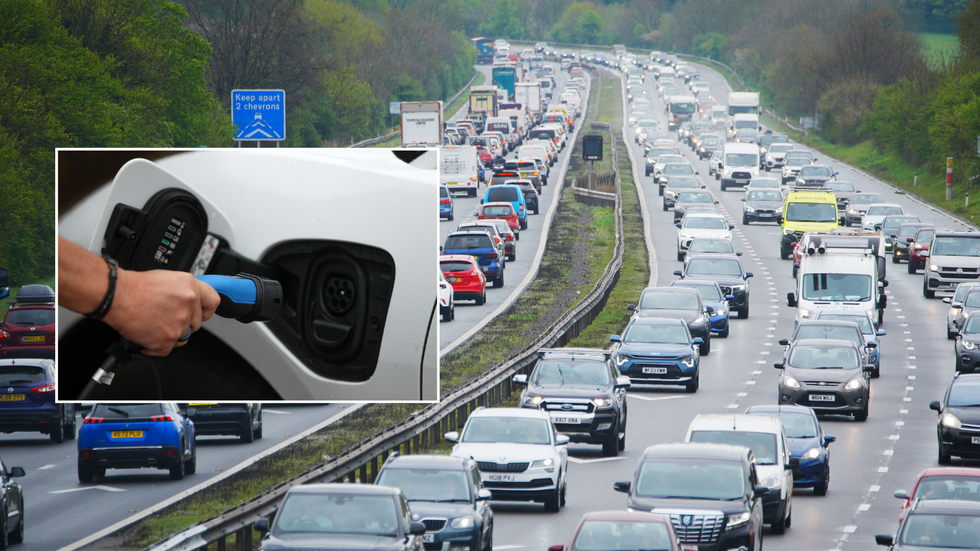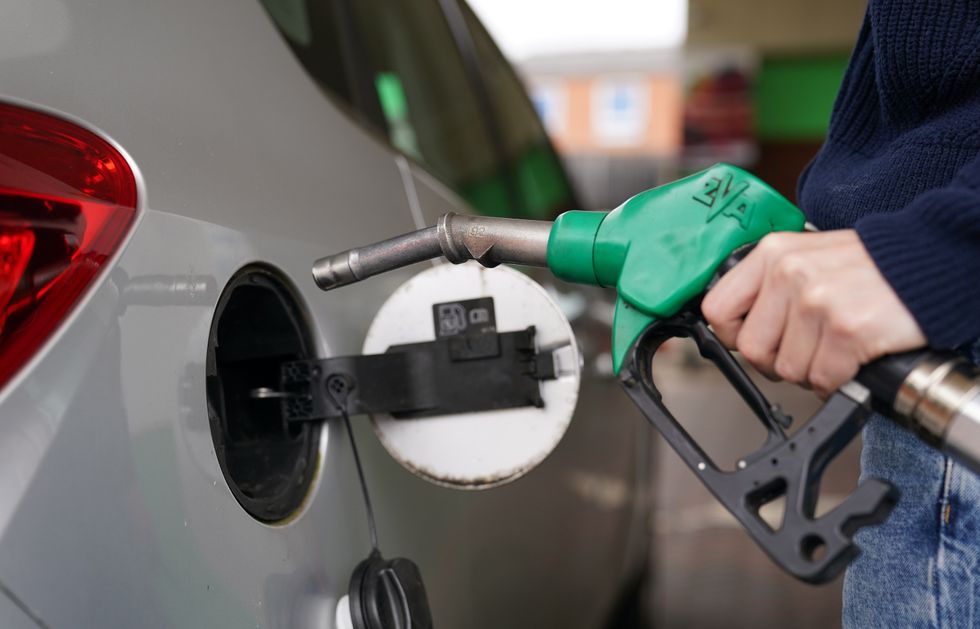HMRC confirms mileage allowance rates for electric cars impacting thousands - 'Financial benefits'

HMRC updated its Approved Mileage Allowance Payment guidance making the benefits for electric cars more clear
Don't Miss
Most Read
HMRC has confirmed that electric car owners can now qualify for the same mileage allowance rates as conventional petrol and diesel vehicles when using their cars for business travel.
The tax authority updated its guidance this week to explicitly clarify that the Approved Mileage Allowance Payment (AMAP) rates apply equally to electric and hybrid cars and vans.
This confirmation hopes to ensure that employees using their own electric vehicles for work purposes can receive tax-free mileage payments at the same rates as petrol and diesel vehicles.
The move aims to provide clarity for both employers and employees as electric vehicle adoption continues to increase across the UK.
Do you have a story you'd like to share? Get in touch by emailing motoring@gbnews.uk

HMRC updated its guidance on fuel allowances by outlining rules for electric vehicles
|PA
Under the AMAP system, electric car owners can claim 45p per mile for the first 10,000 business miles in the tax year, and 25p per mile for any additional business travel, marking the same amount applied to petrol and diesel vehicles.
The mileage rates cover all costs associated with running and maintaining the vehicle, including fuel, servicing, repairs, insurance, road tax, MOT and depreciation.
For motorcycles, the rate is set at 24p per mile regardless of distance travelled, while bicycle users can claim 20p per mile, with the rates remaining unchanged since the 2011-2012 tax year.
Employers can pay these mileage rates tax-free, but if they pay less than the approved amount, employees can claim tax relief on the difference through Mileage Allowance Relief.
For example, if an employer reimburses only 30p per mile instead of the full 45p, employees can claim tax relief on the 15p difference.
This relief is calculated based on the employee's tax rate, with a basic rate taxpayer receiving 20 per cent of the unclaimed amount as tax relief, according to HMRC.
If an employer doesn't reimburse mileage at all, employees can claim tax relief on the full approved amount, provided they earn enough to pay income tax. The same rules apply regardless of whether the car is electric, hybrid or conventional.
HMRC guidance noted that employees should maintain detailed records of their business travel to support mileage claims. This should include dates, destinations, purpose of trips, and business miles travelled for each journey.
The Low Incomes Tax Reform Group detailed that because of the "financial benefits" available, employers might offer their entire workforce access to company cars via an electric vehicle salary sacrifice scheme.
"Although this is aimed at employers, employees may find it useful too. Employees may be using these company cars for business travel. However, they may also retain their own car, and occasionally use that for business travel too," the group shared.
The association acknowledged that there can be confusion over what mileage rates employers should reimburse an employees in these circumstances. "There can also be a question over what additional tax relief, if any, an employee might claim from HMRC," they added.
The group stated: "If you have a company car, but choose to use your own car for business travel, you might not get much, if anything, from your employer towards your mileage costs. But you can claim tax relief from HMRC up to the maximum allowed under the AMAP rates."
LATEST DEVELOPMENTS:
- Aston Martin limits car exports to United States and considers future plans in response to Trump tariffs
- Motorists to be fined 'as quickly as possible' under new speed camera plans - 'Key priority'
- Drivers face serious 'regional disparities' with electric car chargers as major areas see 'almost no growth'

Approved Mileage Allowance Payment are calculated by HMRC every year
| PAThe group explained that if an employer reimburses the employee according to the advisory fuel rates, "this counts as partial reimbursement under the AMAP system".
"So you would have to take the amount reimbursed by your employer into account when working out your tax relief claim," they said.











